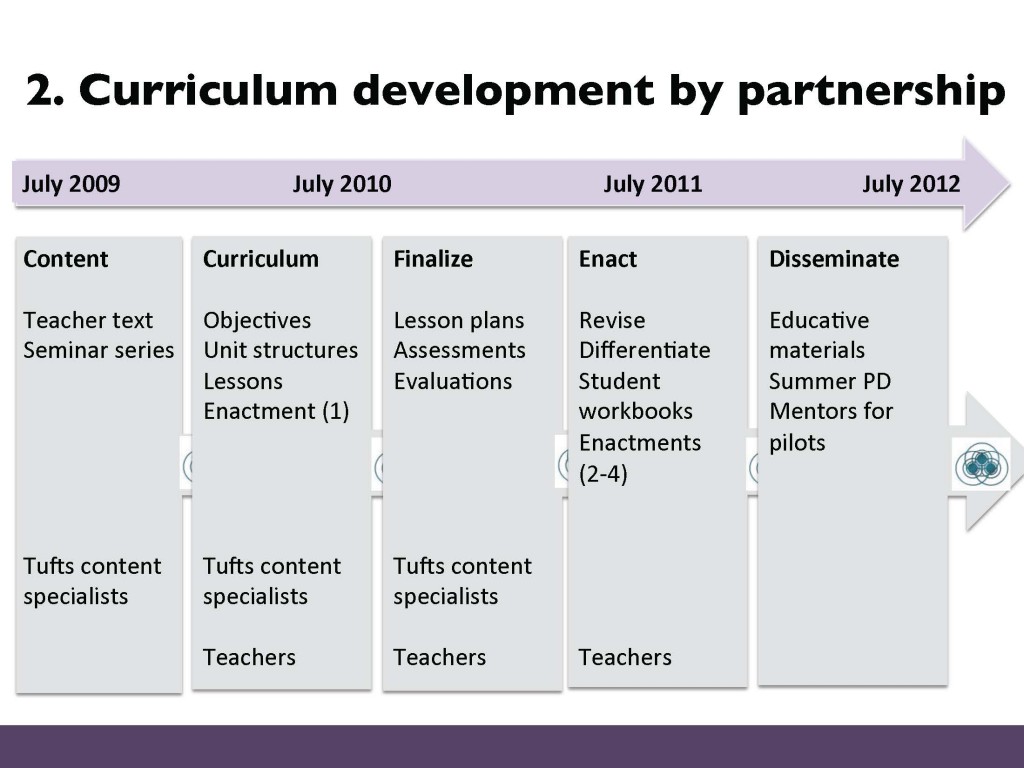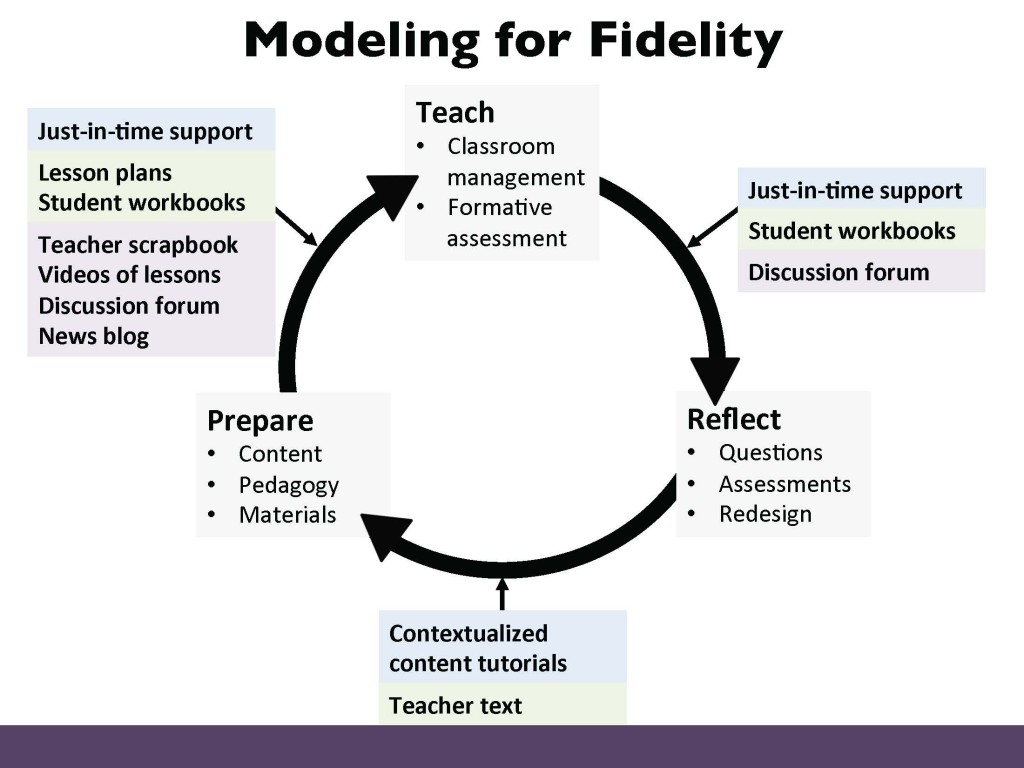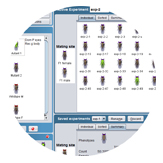
 Professor Karina Meiri and Professor Berri Jacque
Professor Karina Meiri and Professor Berri Jacque
Title: The Great Diseases Partnership: bringing cutting-edge biomedical science to the high school biology classroom
Seminar Date & Time: Thursday, May 1, 2014 @ 1:30 pm
View the slides from Professor Meiri and Professor Jacque’s Seminar
Listen to the audio from Professor Meiri and Professor Jacque’s Seminar
Dr. Karina Meiri is a Professor of Developmental, Molecular and Chemical Biology and Director of the Center for Translational Science Education (CTSE) at Tufts University School of Medicine. Dr. Berri Jacque is a Research Assistant Professor and Co-Director of the CTSE at Tufts University School of Medicine. Together Profs. Meiri and Jacque have developed a model for collaborative curriculum design and implementation using teachers and scientists. In their seminar, titled The Great Diseases Partnership: bringing cutting edge biomedical science to the high school biology classroom, they discussed how they built a year-long biology curriculum focused on the Great Diseases that teachers across the country are using to engage students in real-world science and build their knowledge of health and disease.
The Great Diseases project was specifically designed to provide health literacy for high school students to help meet the current high demand for more people with degrees or certificates in STEM fields. Most of the desired biology & health jobs are health-related, which further promotes the need for a health literate high school population that may go on to pursue a health-related career. In addition, Professors Meiri and Jacque found a potential Boston public high school student population ready for a new health curriculum. Survey results of Boston public high school students indicate their high engagement in studying something that affects their day-to-day behavior and that the students see the value in studying diseases in general. Given their interest in promoting a health literate population and a student population with a high level of engagement, Profs. Meiri and Jacque founded the Tufts University Center for Translational Science Education (CTSE) and started the Great Diseases project, which is a classroom-based intervention to bring cutting-edge health curriculum to high school students in collaboration with Boston public schools, teachers, and researchers at Tufts University.

Figure 1. Great Diseases Curriculum Development. The Great Diseases curriculum is developed through a multi-step process and is the result of a partnership between teachers and researchers.
The Great Diseases project not only provides an engaging, health-related biology curricula for 10th-12th graders, but it is also combined with a revolutionary program where scientists work with and support teachers to implement the curricula in the classroom. The Great Diseases project is a multi-step initiative. First, they engaged the Boston public schools and were successful in engaging two high schools in particular: Boston Latin School and Madison Park School. Second, they developed new, groundbreaking health curriculum as a collaborative effort between scientists and high school teachers (Figure 1). This curriculum development stage includes developing and revising learning objectives, lesson plans, assessments and evaluations in an iterative process (Figure 1). Last, they disseminated the curriculum in the classrooms. While the program started with creating curriculum on infectious diseases, the same process has been extended to developing curriculum on neurological disorders, metabolic diseases, and cancer, the latter two of which are anticipated to be ready for implementation in 2014.
Each curriculum contains five units, each containing several lessons, to bring the total up to 35 lessons. The units are modular and enable the teachers to decide what and how to implement each unit in their own classroom. Each lesson follows the same format and consists of a “Do Now” section to clarify misconceptions, an activity and a wrap-up session. All of the lessons implement inquiry-based pedagogy that tie the concepts to real-world applications; some lessons consist of discussions, student-led teach-backs, small group work or projects, while others consist of hands-on laboratory exercises focused on case studies.

Figure 2. Modeling for Fidelity. The Great Diseases project contains teacher professional development in health curriculum and multiple just-in-time support opportunities to help teachers implement the curriculum effectively.
One of the most important components of the Great Diseases project is not only the emphasis placed on working with teachers to develop and implement curriculum, but the emphasis placed on teacher professional development to promote a health-literate teacher population. Their program, called Modeling for Fidelity (MFF), provides extensive support prior to the lesson as well as just-in-time teacher professional development support (Figure 2). Now that the Great Diseases project has been extended to teachers across the country, the Great Diseases project is developing online teacher support to provide the same extensive support to teachers who are not located locally in Boston.
To assess the effectiveness of the program, they assess three components: student engagement, student performance, and health literacy. All measures indicate the program is a great success. Following the implementation of the infectious disease and neurological disease units, students perform better on post-tests in comparison to pre-tests, indicating greater health content knowledge and problem solving skills. In addition, self-efficacy tests indicate a more health literate high school population following the implementation of the infectious disease, neurological disease or metabolic disease units. A clear sign of success is that the health knowledge and content is leaving the classroom; high school students report that they are sharing their health knowledge with family, friends and other students.
Now that Professors Meiri and Jacque have created such a successful program, they are focused on scaling the project up to reach more students, more easily prepare even more teachers to teach the material, and develop new assessment tools to measure learning outcomes for large populations of students to ultimately promote a more health literate population.



